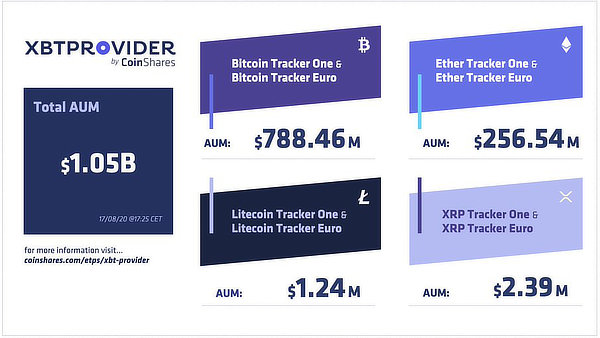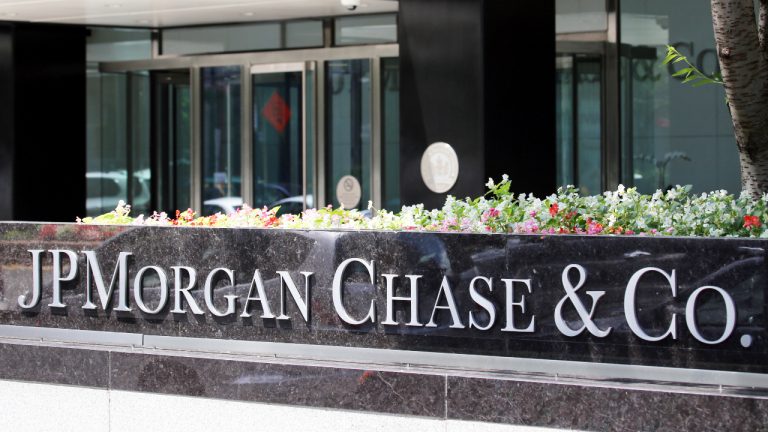
2021-1-26 02:30 |
JP Morgan has outlined three key reasons why investors should add bitcoin to their investment portfolios. Small allocations to cryptocurrencies would “improve portfolio efficiency due to high returns and moderate correlations,” JPMorgan’s analyst explained.
JP Morgan Sees Benefits of Hedging With BitcoinJPMorgan released a report last week entitled “What cryptocurrencies have and haven’t done for multi-asset portfolios.” Published by the firm’s head of Cross-Asset Strategy division, John Normand, the report explores cryptocurrencies’ use for portfolio diversification.
Before discussing the reasons to have BTC in portfolios, the report acknowledges that “Bitcoin has already achieved the fastest-ever price appreciation of any must-have asset to which it is often compared,” such as gold in 1970s, Japanese equities in 1980s, U.S. tech stocks in 1990s, Chinese equities in 2000s, commodities in 2000s, and FANG stocks in 2010s.
While noting that bitcoin is highly volatile, the analyst hypothetically asked: “Why bother considering an unconventional and high-volatility hedge?” He then answered his own question by giving three reasons.
Firstly, “Equity and credit valuations look record-rich for a very young business cycle,” the report details. Secondly, “conventional hedges like DM bonds barely serve as insurance when US 10Y rates are near 1%.” The report elaborates that the collapse of DM bond yields to negative levels in Japan and Europe and to 1% in the U.S. has forced investors to focus on alternative investments.
The third reason concerns “some as-yet unseen shocks (materially higher inflation, economically-debilitating cyber attacks or climate catastrophes),” which the JPMorgan analyst believes “could favor an asset that operates outside conventional financial channels.” For example, Normand cited extraordinary monetary and fiscal stimulus over the past year, which creates general concerns about portfolio vulnerability to a macro or policy shock.
The JPM analyst further asserted that “the mainstreaming of crypto ownership is raising correlations with cyclical assets, potentially converting them from insurance to leverage.” Nonetheless, he noted that for long-term portfolio efficiency:
Small (up to 2%) allocations to cryptocurrencies still improve portfolio efficiency due to high returns and moderate correlations.
if (!window.GrowJs) { (function () { var s = document.createElement('script'); s.async = true; s.type = 'text/javascript'; s.src = 'https://bitcoinads.growadvertising.com/adserve/app'; var n = document.getElementsByTagName("script")[0]; n.parentNode.insertBefore(s, n); }()); } var GrowJs = GrowJs || {}; GrowJs.ads = GrowJs.ads || []; GrowJs.ads.push({ node: document.currentScript.parentElement, handler: function (node) { var banner = GrowJs.createBanner(node, 31, [300, 250], null, []); GrowJs.showBanner(banner.index); } });
As for shorter-term diversification, Normand wrote: “Over shorter intra-month and intra-quarter horizons, crypto assets continue to rank as the poorest hedge for major drawdowns in global equities, particularly relative to the fiat currencies like the dollar which they seek to displace.” In addition, he was quoted as saying:
Crypto continues to rank as the least reliable hedge during periods of acute market stress.
Meanwhile, another JPMorgan analyst has forecasted that the price of bitcoin will reach $146K as competition between the cryptocurrency and gold heats up. Earlier this month, JP Morgan said that the approval of a bitcoin exchange-traded fund (ETF) this year could cause a price drop. Nonetheless, the firm sees $600 billion demand from global institutional investors for bitcoin.
Do you agree with JPMorgan? Let us know in the comments section below.
origin »Bitcoin price in Telegram @btc_price_every_hour
Intelligent Investment Chain (IIC) на Currencies.ru
|
|























